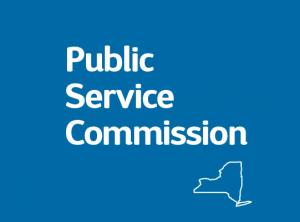New York Adopts FASB Update

The New York Public Service Commission has directed all utilities that fall under its regulatory jurisdiction and that have defined benefit pension plans and/or postretirement benefits packages to switch to an updated accounting standard for purposes of meeting financial reporting requirements, including in rate cases. The commission asserted that while the change could make retail rates more volatile in the short run, ratepayers will not pay more over the long run. The commission explained that the prospect of keeping two sets of books could add a significant level of complexity to the regulatory process.
The commission reported that in March of last year, the Financial Accounting Standards Board (FASB) issued an Accounting Standard Update for Compensation — Retirement Benefits. The revised rule changed the accounting and reporting information required to be used by companies, including state-regulated public utilities, for pension and other postretirement benefit (OPEB) costs under Generally Accepted Accounting Principles (GAAP).>>According to the commission, the main provisions in the updated version include a change in presentation of the net periodic pension/OPEB costs in employers’ financial statements. The commission elaborated that under current GAAP terms, all components of net periodic pension/ OPEB costs are listed in a company’s income statement as an operating expense. Such operating income/operating expense components encompass the following:
- Service costs;
- Interest;
- Return on plan assets;
- Gains/losses;
- Prior service costs;
- Transition assets/obligations; and
- Gains/losses on settlements or curtailments.
Under the modified FASB requirements, however, only the service cost component of the periodic pension/OPEB cost will continue to be included in operating income as an “above-the-line” operating expense. The new rule states that the other six components now are required to be presented separately from the service cost component, as a part of other income and expenses and below the subtotal of income from operations.
The commission related that the fact that non-service cost components are largely affected by market returns and actuarial assumptions, rather than results from operations, was the primary reason why the update moved those elements from the operating income statement to the other income and deductions section of the income sheet. Its decision on the FASB update notwithstanding, the commission emphasized that for rate-making purposes, non-service cost elements of pension/OPEB costs have always been, and will continue to be, treated as legitimate and recoverable costs of doing business for utilities.
The commission noted further that it will still require utilities to book the subject cost elements in the same accounts that they have been using, which are above-the-line for regulatory reporting and rate-making purposes. The commission averred that such an approach will assure that the income from operations listed on the income statement will be consistent with its rate-making treatment. Additionally, the commission stressed that the difference between above-the-line treatment for regulatory books and below-the-line treatment for GAAP books is merely presentational in nature. That is, it said, it only relates to where the costs appear on the income statement but does not impact the actual underlying accounting.
Besides the change in income statement presentations, the commission observed that a second major ramification of the FASB update is a change in accounting associated with the capitalization of pension/OPEB costs. It expounded that prior to the update, utilities were allowed to capitalize a portion of all seven components of the net periodic pension/ OPEB costs, but the revised rule will only allow capitalization of the service cost component, since GAAP protocols do not permit nonoperating costs to be capitalized. The commission stated that the shift of non-service components of pension/OPEB costs from a capital cost to an expense will result in a change in the timing of cost recovery in rates, as such costs will no longer be capitalized and recovered over the book life of the related plant.
Instead, the commission reported, they will be expensed as incurred. In approving the accounting changes, the commission rejected the primary argument offered in opposition to adoption of the update, that being that it will add volatility to customer rates, outweighing any benefits of allowing the utilities to keep a single set of books. Although the commission admitted that whenever revenues or expenses are recognized immediately through the income statement, as opposed to being capitalized and recovered over the life of an asset, some amount of volatility might be introduced into the revenue requirement, it concluded that the costs and benefits of making the accounting switch ran the other way in this case. Pointing to the complexity, potential errors, and costs involved in maintaining separate books over the life of an asset, the commission held that reconciling the two sets of books would be very difficult and would require tracking vintage year differences spanning asset lives that could surpass 80 years. It thus found that over the long term, customers will pay the same amount for the cited costs under either accounting methodology. Re Accounting Standards Update Entitled Compensation-Post Retirement Benefits, Case 17-M- 0363, Dec. 18, 2017 (N.Y.P.S.C.).



